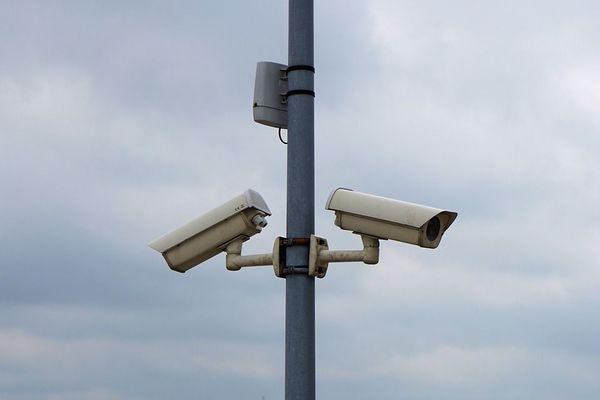
In 2017, the Labor opposition argued against a Coalition proposal to allow a minister to declare certain items in immigration detention prohibited. It opposed the idea again in 2020.
Now, the Labor government has introduced its own bill, with the exact same name as the ones the party previously opposed: the Migration Amendment (Prohibiting Items in Immigration Detention Facilities) Bill.
“It’s still, in substance, very much the Coalition’s bill from 2017 and 2020,” Asylum Seeker Resource Centre deputy chief executive Jana Favero told Crikey.
“Labor’s condemnation of the earlier bills was quite widespread, but they’ve only tinkered with some elements in the current version of the bill — and they’ve done it in such a rushed way that there has never been time to properly scrutinise the safeguards they say they’re bringing in.”
Addressing the 2020 bill in Parliament, then shadow multicultural affairs minister Andrew Giles complained the proposed ability to seize phones was unnecessary because “the government already has the powers it needs”. He also asserted that the Coalition’s argument that many in immigration detention have criminal histories wasn’t enough of a justification for “not treating people as individuals on their own terms”, and said that “phones generally provide a positive benefit to detainees and their welfare”.
“Of course, access to mobile phones also provides an important wide benefit in enabling the scrutiny of conditions and conduct at immigration detention facilities. It is concerning that this is not an issue of any significant interest to the government,” he said.
Giles, who was appointed multicultural affairs and immigration minister in 2022 before the roles were taken over by Tony Burke earlier this year, did not speak on Labor’s own version of the bill when it was introduced last week.
But Burke did, and his arguments for the bill were remarkably similar to the ones the Liberals made in 2020.
“Over recent years, asylum seekers have been replaced in immigration detention by individuals who have had their visa cancelled on character grounds, who often have serious criminal histories … there have been incidents of criminals in detention facilities using encrypted messaging services to run drug trafficking and other organised crime activities,” Burke said last Thursday.
“Officers need extended powers, including the power to search and seize communications devices to stop this from happening.”
Mobile phones are mentioned in the new bill’s explanatory memorandum as one of the examples of items that may be determined prohibited by a minister. But Burke told Parliament he wanted to make it clear the bill would not establish a blanket prohibition on phones.
“To ensure the rights of detainees to engage in communications with others outside of the detention facilities are maintained, if the thing that is seized is a mobile phone or communication device, the detainee will be provided with an alternative device until such time as their device is returned,” Burke said. “This will ensure there is no impact on their ability to contact their friends and family or to engage in any other lawful communication under their constitutionally implied rights.”
Favero said the vow detainees would get an alternative means of communication wasn’t enough to assuage critics of the bill.
“They haven’t guaranteed what that alternative would be, and it looks like it will be discretionary and up to the guards,” she said.
“What if you have complained about the guard, and then that guard is the one who doesn’t give you back your phone? The safeguards are not in there to protect the rights and liberties of people in immigration detention.”
Favero said she was concerned Labor was trying to “rewrite history to make it look like they have addressed all their original concerns”.
“The only thing that has changed is that Labor wants to get reelected, and they’re looking at what happened in the US election and have decided to target refugees, asylum seekers and migrants in the hope of winning votes.”
The item prohibition bill will be brought to the Senate as part of a package that also includes a bill that would allow the Australian government to deport people to countries that have agreed to house them in exchange for payment. A third bill in the package includes a provision that would give a minister the discretionary personal power to designate a nation as a “removal concern country”, which would prohibit people from that country from applying for an Australian visa.
The latter power has been compared to US president Donald Trump’s 2017 travel ban.
“It’s absolutely a fair comparison — you’re looking at listing certain countries to bar [people from there] from entry,” Favero said.
The package is scheduled to be voted on in the Senate on Thursday afternoon.
Patricia Rushton, a lawyer whose PhD thesis on Australia’s Migration Act will be published as a book next year, said she believed Labor was moving the bills with Coalition support in order to preempt a “stranger danger campaign” by the opposition at the next election.
“I suppose we get the politicians we vote for,” she told Crikey. “We ask almost every person who comes to Australia to sign onto what we call the Australian values, and those values talk about compassion and fairness. I think Australia needs to face up to what we want and who we are, and not pretend one minute we’re compassionate and fair and the next minute act in the opposite way.”
Have something to say about this article? Write to us at letters@crikey.com.au. Please include your full name to be considered for publication in Crikey’s Your Say. We reserve the right to edit for length and clarity.







